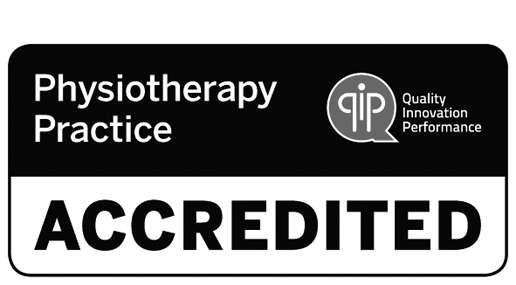Hot Off The Press: The ICI Book
Key Messages
- The recently published ICI Book 6th Edition highlights the very strong evidence base supporting pelvic floor muscle training as an effective treatment for many bladder and bowel disorders
- Pelvic floor muscle training is Grade A recommended treatment for female urinary incontinence and pelvic organ prolapse
- Pelvic floor muscle training programs must be supervised and intensive to get the most benefit
The recently published and highly anticipated 6th edition of the ‘International Consultation on Incontinence’ book highlights the very strong evidence base supporting pelvic floor muscle training as an effective treatment for many bladder and bowel disorders. Pelvic floor muscle training is Grade A recommended treatment for female urinary incontinence and pelvic organ prolapse.
The International Consultation on Incontinence (ICI), a committee of continence and pelvic floor experts from around the world, meets every 2- 4 years and publishes a book outlining the latest evidence and recommendations for management of pelvic floor disorders. This book is considered a ‘bible’ for continence and pelvic floor professionals. I was very excited to receive a digital advance copy in my inbox just a few weeks ago and would like to share some highlights.
Pelvic Floor Muscle Training For Female Urinary Incontinence
Pelvic floor muscle training (PFMT) aims to improve strength, endurance, coordination, or relaxation of the pelvic floor muscles. The pelvic floor muscles play an important role in the urinary continence mechanism:
- In stress urinary incontinence, the pelvic floor muscles contract to occlude the urethra and prevent urethral hypermobility
- In urgency urinary incontinence, the pelvic floor muscles contract to occlude the urethra during detrusor contraction to prevent leakage, and can also be used to suppress and inhibit detrusor contractions
The ICI report Level 1 evidence supporting PFMT as an effective stand-alone therapy for female urinary incontinence, with rigourous studies showing benefits across differing age cohorts, types of urinary incontinence, and in varying cultural contexts.
| ICI Recommendation: Treatment of Urinary Incontinence in all Women Grade A Recommendation: Supervised PFMT should be offered as a first-line conservative therapy for women of all ages with urinary incontinence. |
Pelvic Floor Muscle Training In Pregnancy And
Post-natal Women
Pregnancy leads to weakening of the pelvic floor muscles, even if women have a caesarean delivery. So much so, that 1 in 3 parous women have urinary incontinence. There is level 1 evidence supporting the use of supervised PFMT for prevention and treatment of urinary incontinence (UI) associated with pregnancy, and it is recommended as the first-line conservative treatment option.
| ICI Recommendation: Prevention of UI in Childbearing Women Grade A Recommendation: Offer continent, pregnant women a supervised (including regular health professional contact) and intensive strengthening PFMT program to prevent ante-partum and postpartum UI. |
| ICI Recommendation: Treatment of UI in Childbearing Women Grade A Recommendation: PFMT should be offered as first line conservative therapy to women with persistent UI symptoms three months after delivery. |
Pelvic Floor Muscle Training For Pelvic Organ Prolapse
The pelvic floor muscles play a crucial role in pelvic organ support, and are vital in prevention and management of prolapse. A weak pelvic floor leads to stretching and eventual tearing of the ligaments and fascia supporting the pelvic organs. There is Level 1 evidence that PFMT can effectively reduce symptoms of prolapse, and can prevent long term prolapse after childbirth.
| ICI Recommendation: Treatment of pelvic organ prolapse Grade A Recommendation: PFMT is effective in reducing pelvic floor symptoms in women with prolapse. |
Intensity And Adherence Is The Key
The ICI group highlight the importance of intensive and supervised PFMT programs. PFMT is an intervention that relies on the participant’s adherence over many months in order to achieve success. Unsurprisingly, there is Level 1 evidence that PFMT with regular supervision is better than PFMT with little or no supervision.
Adherence is so critically important that the ICS published a series of 4 papers and a Consensus Statement recommending strategies to improve adherence to PFMT. This is a topic we also believe in and have written about in the past. Read our article Patient Adherence: The Key To Success
| ICI Recommendation: PFMT Programs Grade A Recommendation: Clinicians should offer and provide the most intensive health professional-led PFMT programme possible within service constraints. |
References
Incontinence, 6th Edition 2017. Editors Paul Abrams, Linda Cardozo, Adrian Wagg, Alan Wein. 6th International Consultation on Incontinence, Tokyo, September 2016.
August 2017





